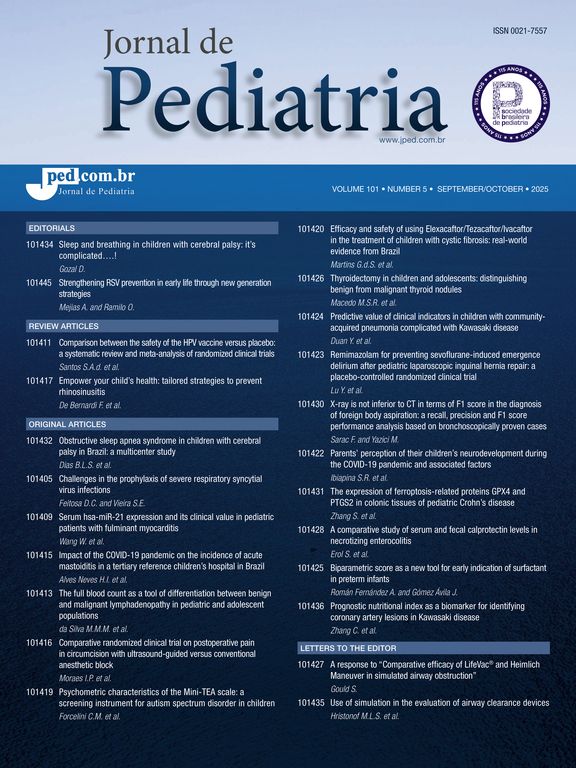In order to determine the etiologic agents involved in atopic diseases in Brazilian children, we have performed this multicentric study in 8 areas in Brazil. We have done prick tests with inhalants and food antigens and analyzed skin tests results, considering positive the wheal mean diameter 3 mm. 22,2% of skin tests were negative and the majority were positive to inhalants: D.pteronyssinus(Dpt) (66,6%) and D. farinae(Df) (66,0%), house dust extract (29,0%), dog's epithelium (19,2%), cat's epithelium (8,8%), feather (5,5%), molds (4,2%), Penicillium sp (2,2%) and Lollium perene (0,6%). We have had 9,1% of food positive tests: cow milk (5,2%), peanut (3,5%), corn (3,2%), cocoa and soya (2,2%), eggs and wheat (1,9%). We have concluded that the domestic mites are the most important agents involved in the etiology of atopic diseases in Brazilian children, and the extracts involved, in line with the sensitization of each geographical area.
The Impact Factor measures the average number of citations received in a particular year by papers published in the journal during the two preceding years.
© Clarivate Analytics, Journal Citation Reports 2025
SRJ is a prestige metric based on the idea that not all citations are the same. SJR uses a similar algorithm as the Google page rank; it provides a quantitative and qualitative measure of the journal's impact.
See moreSNIP measures contextual citation impact by wighting citations based on the total number of citations in a subject field.
See more







